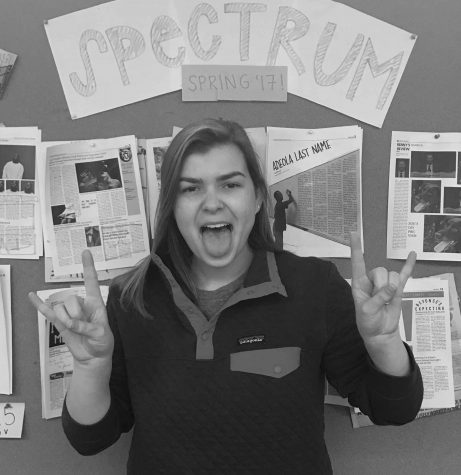The link between music and civil rights
Exploring how pop culture reflects the current struggle
Music affects almost every aspect of our society: pop culture, fashion, dance, and perhaps most importantly, the fight for civil rights. Music expresses emotion in a way that is relatable to anyone who has the ability to hear it. It allows for diverse members of our global community to listen together to what story the music is telling.
Micah Cohn ‘17 who wrote her sophomore research paper on how music affects civil rights, stated, “Music allows a struggling minority group to be able to tell their story. [Music is] a way to boost morale, and share emotion between people. And…it’s a way to tell their story to another group.” The ability to share one’s struggles is an important part of what makes music universal to everyone. Just a rhythm of a song can tell a story, which allows for more people to understand different groups of people.
Weather it rap, pop, jazz, alternative, indie or another genre of music, the rhythm of a song has the capacity to move people. It has the capacity to translate struggle into a relatable message for the world to hear. In this way, music allows for people to express their challenges with society, and hopefully these powerful messages will affect the fight for civil rights. “Music is a way for people to send their message out in the world, and it will always be a way for us to fight for what we want,” Cohn included.
In the 50s, a genre of music called Motown was created by African Americans. This style of music could not be replicated by other people, which allowed for the black community at this time to take ownership of their own music. The stories told in Motown music were stories of struggle, unity, comradeship, and their fight for civil rights. The connection between civil rights and music, therefore, is grounded in history.
Cohn also added that “[music] is always about current events,” which is translated into today’s music. Artists like Macklemore, Ryan Lewis and Mary Lambert sang about gay rights in their song, “Same Love,” which became hugely popular.
Our ideals, stories, and struggles are reflected into our music, so it’s no surprise that we often choose to sing about the fight for civil rights because it has, and will continue to, impact our society.

Hello! It's me, your trusty Editor-in-Chief. I have been an editor since the spring of my Sophomore year, and I haven't looked back since. I have edited...




